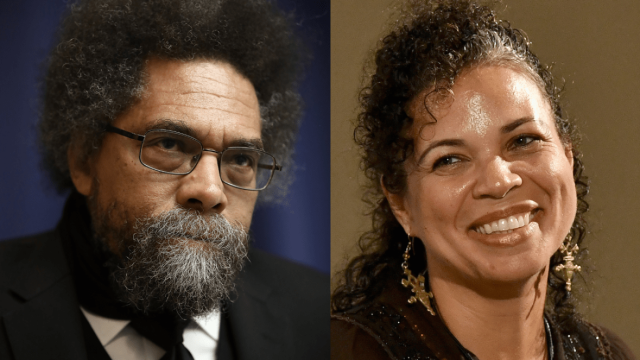Independent presidential candidate Cornel West’s announcement of Melina Abdullah, a prominent Black Lives Matter activist and professor, as his running mate has sparked both intrigue and skepticism in the political arena. This article dives into the significance of West’s decision, examines Abdullah’s background and qualifications, and analyzes the potential implications for West’s candidacy and the broader political landscape.
The Unconventional Choice: Understanding Cornel West’s Decision
West’s selection of Melina Abdullah as his vice-presidential pick defies conventional political norms and expectations. As a renowned activist and intellectual, West’s decision to align himself with Abdullah, a grassroots organizer deeply involved in social justice movements, reflects his commitment to challenging the status quo and amplifying marginalized voices within the political sphere.
The Rise of Melina Abdullah: A Profile of a Movement Leader
Melina Abdullah’s ascent from Pan-African studies professor to co-founder of Black Lives Matter Los Angeles has been marked by her tireless advocacy for racial justice and community empowerment. With a background in academia and grassroots activism, Abdullah brings a unique blend of scholarly insight and real-world experience to the political arena, positioning herself as a formidable force for change.
The Intersection of Activism and Electoral Politics: Navigating Challenges and Opportunities
Abdullah’s nomination as West’s running mate underscores the growing influence of grassroots movements in shaping electoral politics. By bridging the gap between activism and traditional political structures, West and Abdullah aim to mobilize disenfranchised communities and push for progressive policies that address systemic inequality and injustice. However, they also face significant obstacles, including limited resources and entrenched partisan dynamics.
Ballot Access and Electoral Viability: Assessing West and Abdullah’s Path Forward
West’s decision to run as an independent candidate presents both opportunities and challenges in the quest for ballot access and electoral success. With a focus on securing signatures and meeting state-specific requirements, West and Abdullah must navigate a complex landscape of legal hurdles and bureaucratic barriers. Despite the uphill battle, their campaign represents a bold challenge to the dominance of the two-party system and offers an alternative vision for American politics.
The Role of Third Parties in the Electoral Process: Impact and Criticisms
West’s candidacy, along with other third-party contenders, has drawn criticism from establishment figures who view them as potential spoilers in the electoral process. Critics argue that third-party candidates could siphon votes away from major-party candidates, potentially affecting the outcome of the election. However, proponents of third-party politics argue that they provide much-needed diversity of perspectives and challenge the duopoly of the Democratic and Republican parties.
Shaping the Future of American Politics
As Cornel West and Melina Abdullah embark on their campaign for the presidency and vice presidency, their partnership symbolizes a convergence of activism and electoral politics. Their candidacy represents a challenge to the entrenched power structures and offers a platform for voices traditionally marginalized in mainstream political discourse. Whether they succeed in their bid for the White House remains to be seen, but their presence in the race has already left a significant impact on the political landscape, sparking conversations about representation, activism, and the future of American democracy.
